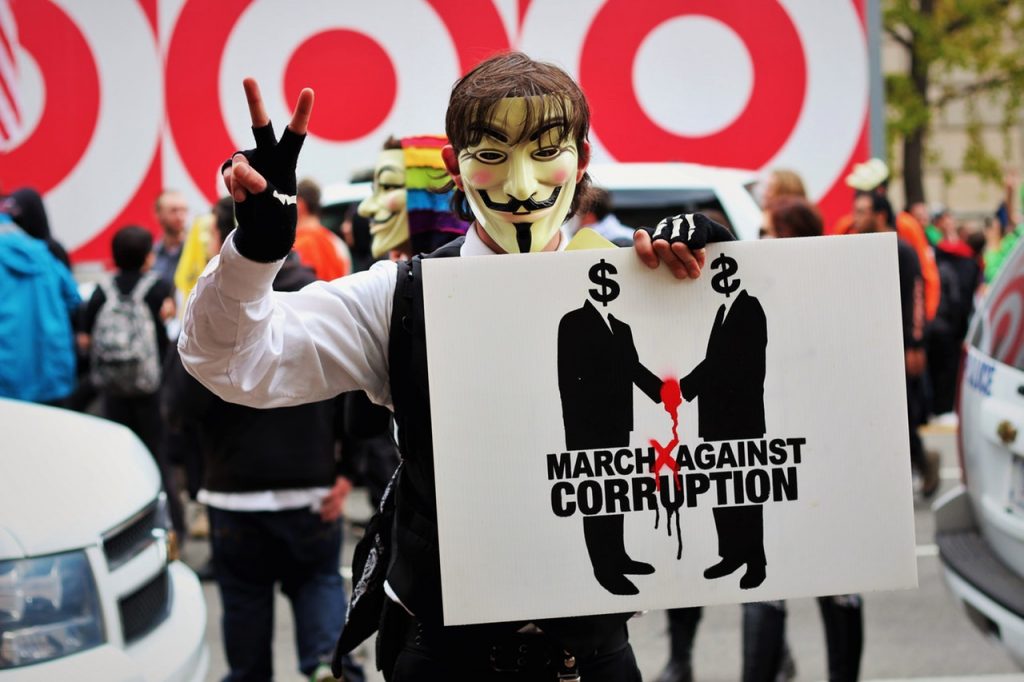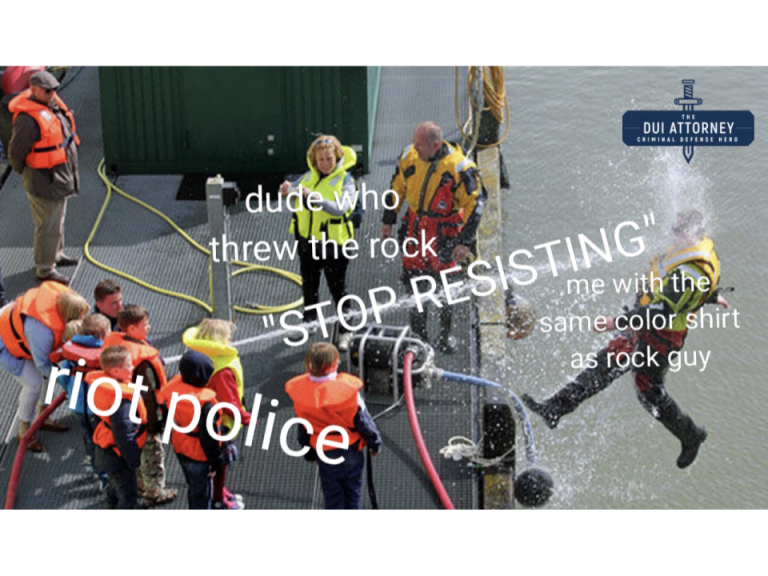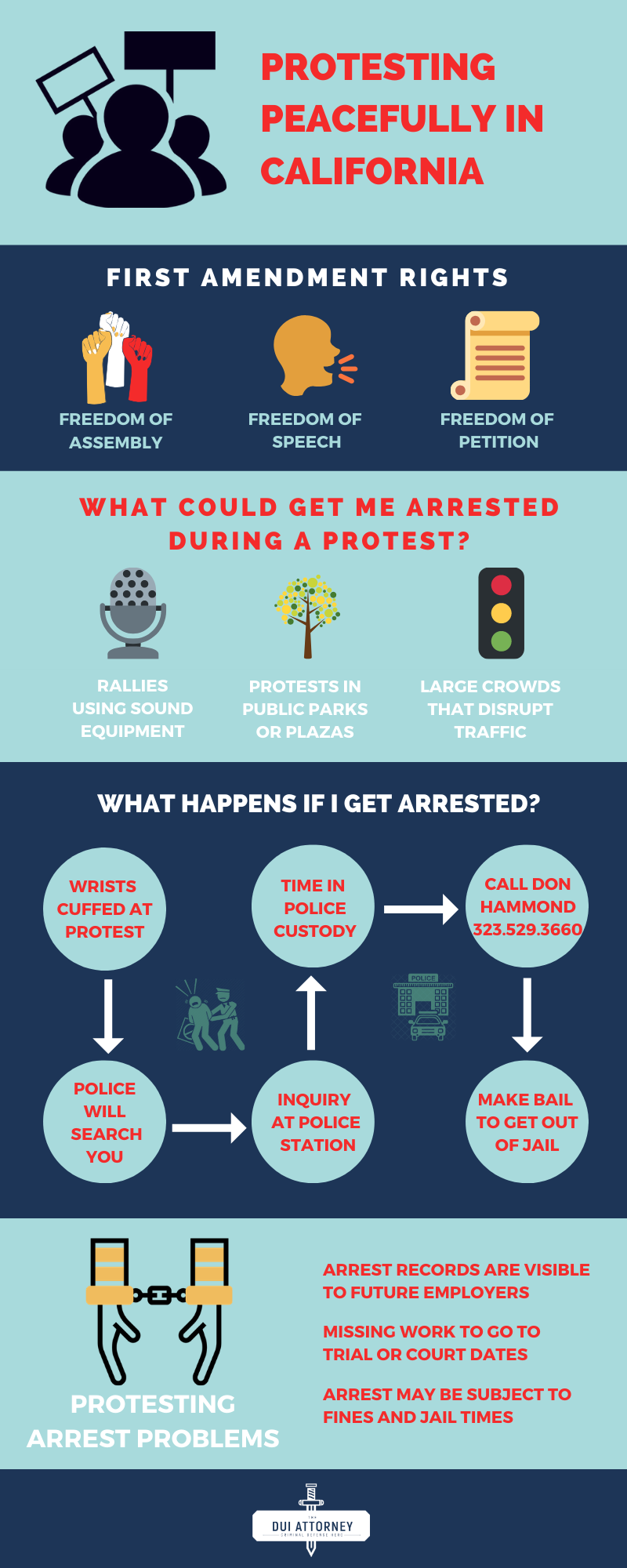
The First Amendment protects the rights of everyone to speak out about their opinions, ideas, or grievances. The right to free speech is just the first step in ensuring that people’s rights are protected by the government. However, with these rights come great responsibility for the participants, be it the organizers or the larger group of protesters. Since authorities are still working to protect the rights of other citizens, the law does not protect anyone who abuses these rights. As a protestor, there are a few things that, if left unchecked, could land you on the wrong side of the law.
What could get me arrested during a protest?
Protection by the law on your First Amendment rights ends when you cross the line with other people’s rights. For example, protests can sometimes turn violent. Violent protests are a cesspool for imminent danger like vandalism or assault to occur. Additionally, you might think that ALL speech is protected under the First Amendment, and you do have the right to express your opinion, no matter how unpopular. Still, the constitution draws the line on speech that is harmful to others, lying under oath (perjury), slander, libel, threatening, or generally repulsive and reviled.
During protests, police authorities are also on the lookout for possible lawbreakers. While you might not be arrested for participating in the protest or rally, any act as trivial as jaywalking or blocking the streets without proper permits will warrant an arrest. Every municipality has its own regulations on the time, place, and manner of conducting your protests. That being said, you might require a permit to execute your demonstrations in specific situations like:
- The march is not being conducted on the sidewalk and the presence of a large crowd is likely to disrupt traffic
- Rallies or gathering using sound-amplifying equipment
- Rallies or protests of specific sizes held in public parks or plazas
To avoid getting caught in any unforeseen incidents. As a protestor or an organizer, we generally advise people to do their research ahead of time and learn about what you might need for a successful protest, be it Attorney Don Hammond save in your speed dial or a permit.
What if I get arrested?
You thought you executed your protests completely legally, but now the police have your wrists handcuffed. First thing’s first; do not make matters worse by resisting. This will only aggravate the situation, and you might get a resisting arrest or assault charge added. Next, the police will briefly search you on the spot. You should assert your rights with your words rather than your body. Remaining courteous and cooperative is easier than resisting an unauthorized arrest and risking lengthy battles in court with determined prosecutors.
After the initial arrest, police will then likely transport you to the nearest local police station for processing. Processing typically entails identification, fingerprinting, taking mugshots, and giving individual citations for court hearings. Although not mandatory, you can expect to spend a long time in police custody or a night or two in jail. If you prepared well before the protest and anticipated a setback like a possible arrest, your friends can pay your bail as soon as possible to prevent any overnight stays.
Will I go for a trial?
Since we really can’t tell how authorities will react, it’s best to be prepared for anything, even a trial several weeks after your arrest. At the time of your arrest, you will be issued a citation for your court hearing. During this preliminary hearing, the court may deliver sentencing right away if you chose to plead guilty. Otherwise, offenders are given a date to return to trial. At this point, you should consider employing the services of a legal aid or attorney. Attorneys come in handy as they can help speed up the process of going in and out of court.
What are the possible consequences?
The biggest worry most Californians have following an arrest is whether their arrest records will be visible to future employers. Luckily, the state explicitly bars institutions from enquiring about prior arrests that did not lead to convictions. They can, however, ask about arrests that are pending trials. On the contrary, tables turn when you have a criminal record. Criminal records usually appear on background checks, and employers can choose not to hire based on the contents of the report. Although, organizations like Equal Employment Opportunity Commission push for anti-discrimination among past convicts, a clean background check is much more appealing to employers than a report with few incidences, no matter how petty. Apart from the loss of potential employment, an arrest and conviction are also subject to fines, probations, and jail-time. Of course, this depends on what charges the prosecution applied.
The right to free speech is one that Americans have come to enjoy. The system isn’t perfect, and sometimes authorities err in following the due process. If you feel that authorities have violated your rights, contact us at Criminal Defense Hero, where we are the forerunners for safeguarding our client’s rights.











